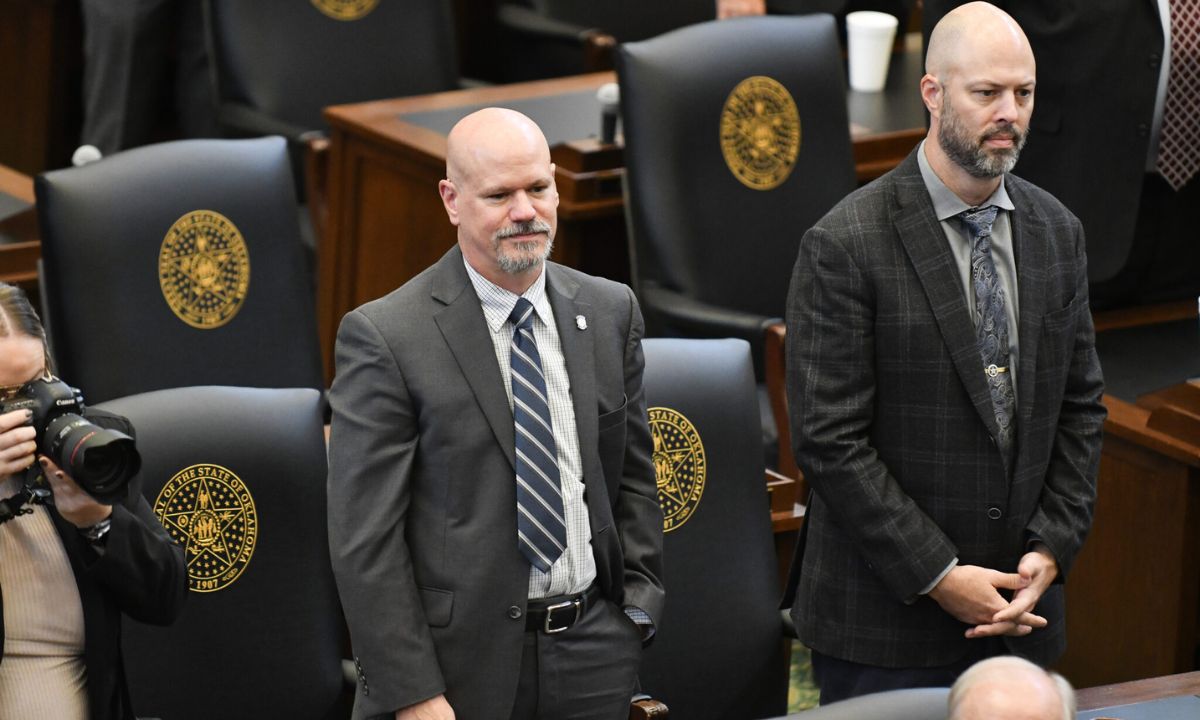Bill Could Allow Oklahoma Districts to Employ Religious Counselors
Faith, school counselor groups oppose it.

Get stories like this delivered straight to your inbox. Sign up for The 74 Newsletter
OKLAHOMA CITY — Legislation permitting chaplains to work in public schools reemerged and advanced in the Oklahoma Legislature this week.
Rep. Kevin West, R-Moore, deleted the original language of Senate Bill 36, a discarded bill from 2023 relating to the Open Records Act, and replaced it with a measure to allow religious chaplains to be hired or to volunteer in schools.
The House General Government Committee passed the new version of SB 36 on Tuesday in a party-line vote 6-2. Four other school chaplain bills failed earlier in the legislative session without receiving a committee hearing.
West said chaplains wouldn’t try to sway students toward a certain faith but could help with counseling, though his bill doesn’t specify required qualifications nor their role in a school.
It forbids chaplains who are registered sex offenders but doesn’t require them to complete a background check.
West said each local school board could decide whether to mandate a particular certification and vetting.
“We have chaplains from many, many different religious backgrounds,” he said before the committee vote. “This is not benefiting one specific religion over another. It is simply a tool that could be at the disposal of a school board to assist with counseling.”
The Oklahoma School Counselors Association encouraged Oklahomans to call on their local lawmakers to vote against SB 36.
“OSCA does not support this bill as we see the necessity of highly trained school counselors to be providing mental health and wellness, academic, and career support to Oklahoma students,” the organization posted in a social media message.
House Democrats have opposed the bill, citing constitutional concerns over hiring religious ministers with public tax dollars.
School counselors typically are required to hold a master’s degree and pass a certification test before being hired to counsel students.
SB 36 includes no language that ensures chaplains are qualified for counseling, and it doesn’t forbid them from preaching their faith, said Rev. Shannon Fleck, executive director of the Oklahoma Faith Network.
Some lawmakers, while supporting SB 36, referred to the military’s use of chaplains, but Fleck said the two are not comparable. Becoming a military chaplain comes with clear requirements, including obtaining a master’s level theology degree, an endorsement from a faith group and military training to work in a multi-faith setting.
“When you’re not putting parameters around something, it could go in a multitude of different directions,” Fleck said. “We really want to be clear about who we are letting into our public schools and who we are allowing access to our children.”
Oklahoma Voice is part of States Newsroom, a nonprofit news network supported by grants and a coalition of donors as a 501c(3) public charity. Oklahoma Voice maintains editorial independence. Contact Editor Janelle Stecklein for questions: [email protected]. Follow Oklahoma Voice on Facebook and Twitter.
Get stories like these delivered straight to your inbox. Sign up for The 74 Newsletter

;)